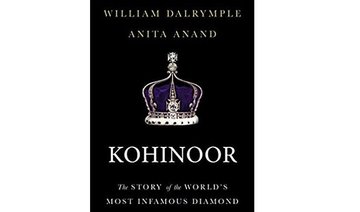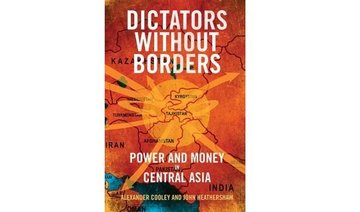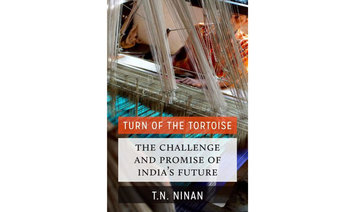“No Road to Paradise” is a novel about one man’s search for fulfilment when he believes he is going to die. His pursuit propels him on a quiet and slow journey to learn about himself and to understand the people around him. The book was written by celebrated author Hassan Daoud. Daoud taught creative writing at the American University of Beirut and worked as a reporter during Lebanon’s civil war. Many of his works have been translated into English, including “No Road to Paradise.” The book was translated by Marilyn Booth who also translated his novel, “The Penguin’s Song.” Originally published in 2013 by Dar Al-Saqi, “No Road to Paradise” was awarded the Naguib Mahfouz Medal for Literature in 2015.
You first meet Daoud’s main character in his doctor’s office. He is preparing himself for bad news. He knows he is sick and has known it for some time, but has been unable to say the words out loud to himself as he has been bound by fear. His fear stems from his stature and position as the imam of a small village called Shfqifiyeh in Lebanon. Vaguely, the doctor tells him that he is to come back in a few days and that he will undergo an operation.
The character knows he has cancer and knows it will be the end of him.
Daoud’s book is slow and careful, detailed and brimming with discontent. We meet his character at a moment in his life when his many different paths — the path he is on, the path he desires and the path he fears — are coming together. He must make a choice and choose one path. He is a man who has always done what he was supposed to do, no matter how unhappy it has made him. He has had to fulfill his legacy as an imam, the profession of his father and grandfather and their forefathers. However, from the moment the reader first meets him, he is unsure of himself, his career and whether or not he wants to continue to be an imam.
“Although I had been putting on the abaya and turban of my… profession since I was a very young man, I still find myself reacting as though I always had to put them on in spite of myself,” the character says in the book.
His life has been dictated to him since he was young, his father’s commitment to him and to the profession was the driving force he thought he needed to love his life. However, when he is sent to school to become an imam and returns to a wife he does not know and a house his father has chosen for him, his hesitation grows. “When I started wearing the cloak and turban of the religious, I felt like I was living in someone else’s clothes,” the character says.
His disillusionment with his job is only heightened by his relationship with his wife. Chosen for him because she was the daughter of a relative, their union has been uncomfortable since the beginning. He believes that she hates him, as if she “was a person who was waiting for another life, even expecting a different life to be granted to her.”
Never able to fulfill their duties toward each other, they harbor resentment that is visible in their attitudes, words and actions. They are two people living together with nothing else to hold them but duty and children.
Daoud writes each character meticulously, revealing them through the mostly sympathetic, at times apathetic and critical, eyes of his narrator, the imam.
As the imam comes face to face with his illness, his life begins to crumble around him. He wonders why he has continued to allow himself to move forward with his unhappy life. He questions everything and distances himself from the greatness of his father and grandfather. His illness propels him into a state that changes him, both physically and mentally, and puts his faith into question. As an imam, Daoud’s main character is familiar with death and has recited Qur’anic verses for the dead and been present at many funerals. He is aware that the only known fact about death is its inevitability and that it signals the end of life on earth, but not eternal life. However, his fear takes hold of him when he faces his own death. The imam’s impression of death is powerful as he thinks of those people in the past who “still knew that a space of time separated them from death. For death was hidden. It lay in their bodies, but they didn’t know exactly where it was.” The imam does not have this luxury.
Daoud is a profound writer, his characters multi-faceted, their flaws and fears stronger than their strengths and courage, making them believable and relatable. The life he has created for his imam is anything but quaint. The imam has been unable to fill the shoes of his ancestors, unable to find the peace he has been looking for and unable to find a compatible companion or friend since leaving school in Najaf. He has no one in his village who he can talk to as “the most they expected from me was a response when they requested something,” he says in the book.
Throughout the book, the reader journeys with the imam as he searches for where he belongs in life. It is a story that is not often told, but is immensely relatable.
Book Review: A journey in the face of death
Book Review: A journey in the face of death

What We Are Reading Today: ‘California Amphibians and Reptiles’

Authors: Robert Hansen & Jackson D. Shedd
California is home to more than 200 species of reptiles and amphibians that can be found in an extraordinary array of habitats, from coastal temperate rainforests with giant redwoods to southeastern deserts offering dazzling wildflower displays each spring.
“California Amphibians and Reptiles” covers every species and subspecies in this biodiverse region of the United States, with outstanding color photography and in-depth species accounts that draw on the latest findings on taxonomy and distribution.
What We Are Reading Today: ‘There Are Rivers in the Sky’

- Narin is a Yazidi girl surviving genocide in 2014 Iraq, her spirit as unyielding as the ancient lands she is forced to flee
Author: Elif Shafak
This historical novel by Elif Shafak, “There Are Rivers in the Sky,” was published in 2024 and is a meditation on life, loss and love.
Anchored by the Tigris and Thames rivers serving as motifs, the story drifts across centuries, stitching together fractured lives bound by intimacy, trauma, and the quiet power of water.
There are three characters at the heart of this story.
Arthur is a 19th-century linguist whose passion for Mesopotamia’s ruins eclipses his ability to connect with the living.
Narin is a Yazidi girl surviving genocide in 2014 Iraq, her spirit as unyielding as the ancient lands she is forced to flee.
And then there is Zaleekhah, a hydrologist in modern London, drowning in family secrets until she learns to swim toward redemption.
Their stories collide, ripple and reshape one another. Water is not just a metaphor here, it is a character. The rivers breathe life into memories, erode pain, and carry the weight of history.
Arthur’s obsession with the “Epic of Gilgamesh” mirrors his own loneliness as a man chasing immortality through dusty texts while real love slips through his fingers.
Narin’s resilience, rooted in Yazidi traditions, becomes a lifeline in a world determined to erase her people.
As for Zaleekhah, her journey from guilt to grace feels like watching a storm clear — messy, cathartic, and utterly human.
Shafak’s writing is lush, almost tactile. You can taste the silt of the Tigris, feel London’s rain, and ache with the characters.
But here is the catch: this book demands your attention. The timelines —switching between Victorian letters, wartime horror, and modern angst —are a high-wire act.
While the layers add depth, some readers might stumble over dense historical nods or Yazidi cultural nuances. (A glossary would have been a welcome raft.)
Yet, even its flaws pulse with intention. The same complexity that overwhelms also rewards.
This is not a book you breeze through. It is one you wade into, letting the currents tug you into deep, uncomfortable places.
The pacing does drag at times, and Shafak’s ambition occasionally outruns clarity.
In the end, Shafak asks: Can we ever truly outrun history? Or do we, like rivers, carve new paths while carrying the scars of where we have been?
This novel does not answer so much as invite you to sit with the question, long after the last page turns.
What We Are Reading Today: ‘The African Revolution’ by Richard Reid

Africa’s long 19th century was a time of revolutionary ferment and cultural innovation for the continent’s states, societies, and economies. Yet the period preceding what became known as “the Scramble for Africa” by European powers in the decades leading up to World War I has long been neglected in favor of a Western narrative of colonial rule.
The African Revolution demonstrates that “the Scramble” and the resulting imperial order were as much the culmination of African revolutionary dynamics as they were of European expansionism.
What We Are Reading Today: The Power to Destroy

Author: Michael J. Graetz
The postwar US enjoyed large, widely distributed economic rewards — and most Americans accepted that taxes were a reasonable price to pay for living in a society of shared prosperity.
In 1978 California enacted Proposition 13, a property tax cap that Ronald Reagan hailed as a “second American Revolution,” setting off an antitax, antigovernment wave that has transformed American politics and economic policy.
In The Power to Destroy, Michael Graetz tells the story of the antitax movement and how it holds America hostage — undermining the nation’s ability to meet basic needs and fix critical problems.
What We Are Reading Today: Habitats of Africa

Authors: Ken Behrens, Keith Barnes & Iain Campbell
With breathtaking wildlife and stunningly beautiful locales, Africa is a premier destination for birders, conservationists, ecotourists, and ecologists.
This compact, easy-to-use guide provides an unparalleled treatment of the continent’s wonderfully diverse habitats.
Incisive and up-to-date descriptions cover the unique features of each habitat, from geology and climate to soil and hydrology, and require no scientific background. Knowing the surrounding environment is essential to getting the most out of your travel experiences.


















